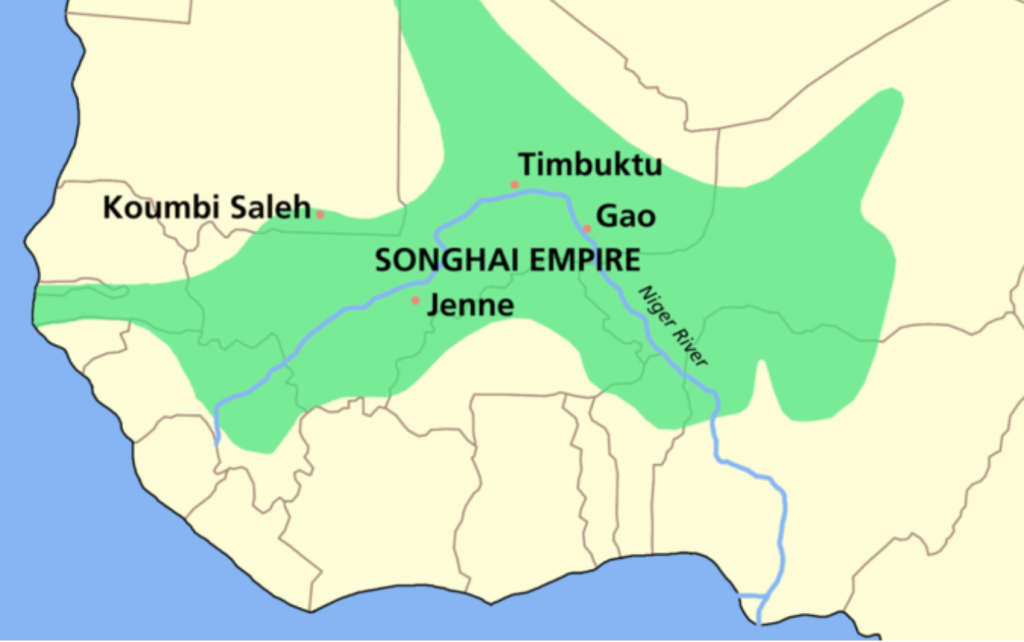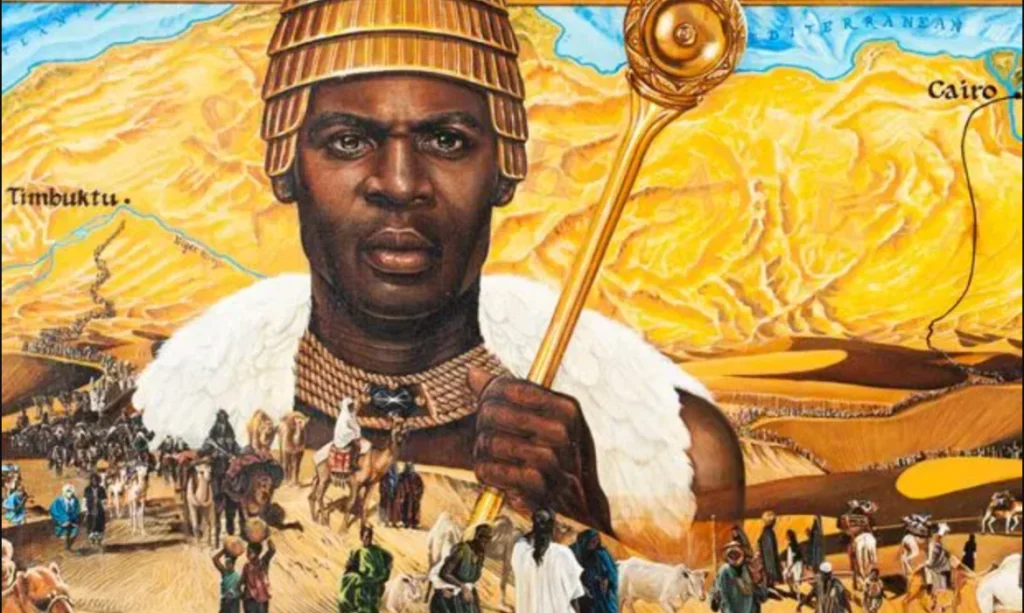Africa has a rich history of powerful kingdoms and empires that spanned over centuries. These great civilizations had their own unique cultures, traditions, and systems of governance. This article provides a brief overview of some of the most significant kingdoms and empires that existed in Africa, from Ancient Ghana to the Mali Empire.

Ancient Ghana Empire
The Ancient Ghana Empire was one of the earliest known kingdoms in West Africa, existing from the 6th to the 13th century. It was located in what is now southeastern Mauritania and western Mali. The empire was renowned for its vast wealth, which came from its control of the trans-Saharan trade routes. The Ghana Empire was a monarchy with a centralized government, and its rulers were known as Ghana. The empire was also known for its sophisticated military tactics, and it controlled a vast territory, including parts of modern-day Senegal, Mauritania, and Mali.
The Kingdom of Aksum
The Kingdom of Aksum was an ancient civilization that existed in the northern part of present-day Ethiopia from the 1st to the 8th century AD. It was a powerful kingdom that controlled a significant portion of the Red Sea trade routes. The Aksumite Empire was known for its advanced technologies, such as their engineering feats of building tall obelisks made of single granite stones, and its distinctive coinage. The kingdom was also one of the first in Africa to adopt Christianity as its official religion.

The Kingdom of Kush
The Kingdom of Kush was an ancient civilization that existed in the Nile Valley from the 8th century BC to the 4th century AD. It was located in what is now present-day Sudan. The kingdom was known for its wealth, which was derived from its control of the trade routes between Egypt and the interior of Africa. The Kushites were also skilled in iron-making, and their iron weapons gave them a significant military advantage over their rivals.
The Kingdom of Axumite
The Kingdom of Axumite was a powerful empire that existed in the Horn of Africa from the 1st to the 7th century AD. It was located in what is now present-day Ethiopia and Eritrea. The empire was known for its wealth, which came from its control of the Red Sea trade routes. The Axumite Empire was also one of the first African kingdoms to mint its currency, and its coins were used as a medium of exchange in the Red Sea region.

The Kingdom of Mali
The Kingdom of Mali was a powerful empire that existed in West Africa from the 13th to the 15th century. It was located in what is now present-day Mali, Senegal, and parts of Guinea and Mauritania. The empire was known for its vast wealth, which came from its control of the trans-Saharan trade routes. Mali was a Muslim kingdom, and its most famous ruler, Mansa Musa, was known for his pilgrimage to Mecca, where he distributed vast amounts of gold, making him one of the wealthiest people in history.
The Kingdom of Songhai
The Kingdom of Songhai was a powerful empire that existed in West Africa from the 15th to the 16th century. It was located in what is now present-day Niger, Mali, and parts of Burkina Faso. The empire was known for its vast wealth, which came from its control of the trans-Saharan trade routes. The Songhai Empire was also known for its advanced military tactics and its use of firearms, which gave it a significant advantage over its rivals.

The Kingdom of Kanem-Bornu
The Kingdom of Kanem-Bornu was a powerful empire that existed in what is now present-day Chad, Nigeria, and Cameroon from the 9th century
to the 19th century. The kingdom was located in the Sahel region, and it was known for its control of the trans-Saharan trade routes. The Kanem-Bornu Empire was also renowned for its military prowess, and its rulers were skilled at consolidating power and expanding their territory.
The Kingdom of Benin
The Kingdom of Benin was a powerful empire that existed in what is now present-day Nigeria from the 13th to the 19th century. It was located in the southern part of the country, and it was known for its rich cultural heritage and artistic traditions. The Benin Empire was also renowned for its military might, and it maintained a standing army that was feared by its enemies.
The Kingdom of Dahomey
The Kingdom of Dahomey was a powerful empire that existed in what is now present-day Benin from the 17th to the 19th century. It was located in the southern part of the country, and it was known for its powerful army of female warriors, known as the Amazons. The Dahomey Empire was also known for its advanced systems of governance and its sophisticated court culture.

The Zulu Kingdom
The Zulu Kingdom was a powerful empire that existed in what is now present-day South Africa from the 18th to the 19th century. It was located in the southeastern part of the country, and it was known for its military might and its use of the spear and shield. The Zulu Empire was also renowned for its social organization and its strict adherence to cultural norms and traditions.
The Kingdom of Ashanti
The Kingdom of Ashanti was a powerful empire that existed in what is now present-day Ghana from the 17th to the 19th century. It was located in the central part of the country, and it was known for its sophisticated court culture and its advanced systems of governance. The Ashanti Empire was also renowned for its skilled craftsmen and its production of gold, which was used as currency.
The Oyo Empire
The Oyo Empire was a powerful empire that existed in what is now present-day Nigeria from the 14th to the 19th century. It was located in the southwestern part of the country, and it was known for its advanced systems of governance and its sophisticated court culture. The Oyo Empire was also renowned for its skilled military and its use of cavalry.
Conclusion
The great kingdoms and empires of Africa were some of the most powerful and sophisticated civilizations of their time. They controlled vast territories and were renowned for their wealth, military might, and advanced systems of governance. These kingdoms and empires also had a significant impact on African culture and traditions, which can still be seen in the present day. It is important to remember and celebrate these great civilizations as they are a testament to the resilience, ingenuity, and creativity of the African people throughout history.
